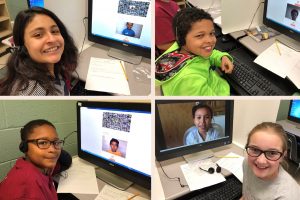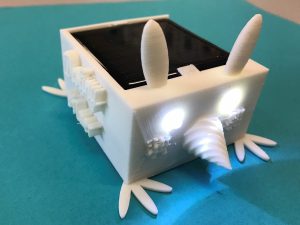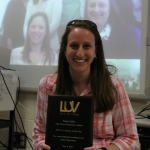A committee of The Virginia Society for Technology in Education (VSTE), with the support of the Virginia Department of Education's Office of Technology and Virtual Learning, is drafting new Technology Standards for Instructional Personnel (TSIP).
If approved, these standards will update the original 1998 standards and represent the base level skills that every educator must meet in order to be considered proficient in the use of technology for teaching and learning.
Below you can read the most current draft of the proposed revision to the Standards. We invite feedback on this proposal from every Virginia educator and you can provide your comments using this form.
--------------------------
Proposed TSIP Standards (DRAFT) 2/13/2017
1. Lifelong Learner: Teachers engage in ongoing professional learning related to content, pedagogy and technology.
a. Engages in ongoing professional growth related to the use of innovative instructional strategies that integrate digital technologies.
b. Use technology to obtain feedback that allows for reflection and improvement in the learning process.
c. Employs digital tools to collaborate with the learning community on educational topics and learning opportunities.
2. Digital Leadership: Teachers model safe and ethical practices for their students.
a. Cultivate and manage their digital identity and reputation and are aware of the permanence of their actions in the digital world.
b. Promote safe and ethical behavior with students through collaborative online experiences
c. Embed digital citizenship skills in all lessons involving online experiences
d. Model the use of technology to communicate, create, collaborate and solve problems
e. Select appropriate digital content, tools and resources that meet local, state and/or federal policies.
f. Demonstrate an understanding of the rights and obligations of student privacy and security when collecting and using student data and selecting digital content, tools, and resources.
3. Learning Facilitator: Teachers support student learning by harnessing the power of technology.
a. Incorporate learning strategies that use technology to accommodate learner variability, personalize learning, and engender student choice, self-direction and goal-setting. (Possible Indicators: coursework in personalizing learning; recognizes and can articulate examples of personalizing learning using technology; articulates how to determine learner variability and potential technology solutions.)
b. Assist students in selecting and using appropriate and available digital tools for learning, creating, problem-solving and communicating. (Possible Indicators: Coursework in using digital tools in the classroom; recognizes a variety of digital tools and can articulate how they might be used with students; lesson plan that involves using digital tools to develop these skills.)
c. Use a variety of formative and summative assessments that leverage the power of technology to provide immediate and specific feedback, and offer alternative learning paths to students including competency-based approaches. (Possible Indicators: coursework in assessments; experience with using technology-based formative and summative assessments; ability to develop such assessments regarding a specific SOL.)
d. Acquire, access, and analyze quantitative and qualitative data to effectively respond to students’ needs and communicate findings to various stakeholders. (Possible indicators: coursework in assessment and understanding data; experience with using technology-based assessment tools; communication skills for interpreting data for student/parent/administrators.)
4. Skilled Technology User: Understand the fundamental concepts of technology operations and troubleshooting as well as basic uses of technology in instruction
a. Demonstrate the ability to choose and use digital technologies including both hardware, software and web-based resources to support classroom instruction
b. Demonstrate the ability to troubleshoot typical classroom technologies using a variety of resources
c. Perform basic computing operations such as accessing accounts, select appropriate applications to perform tasks, file management and web navigation.



